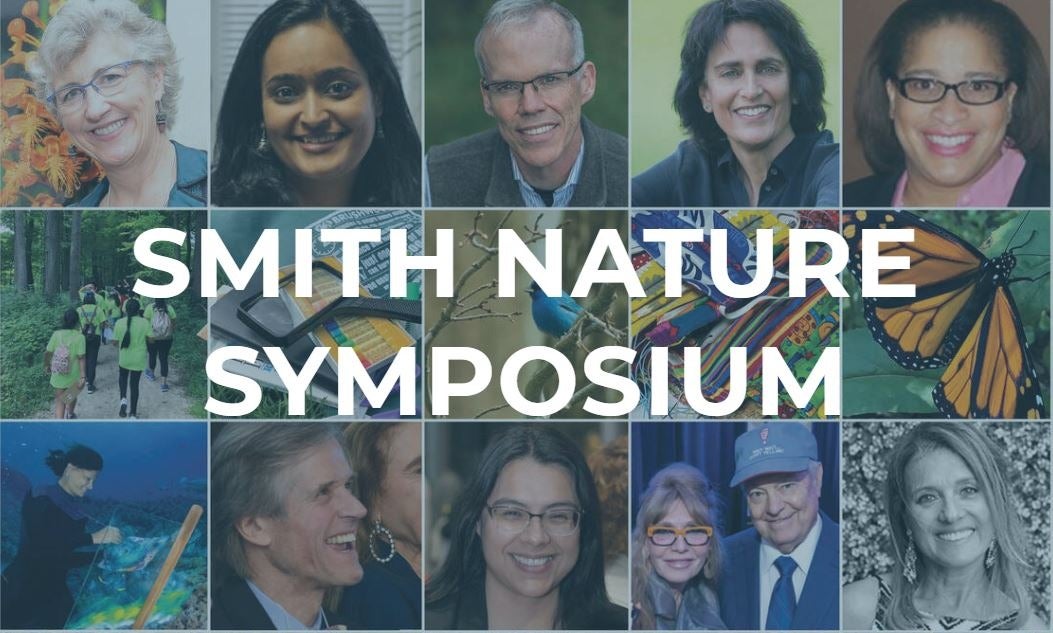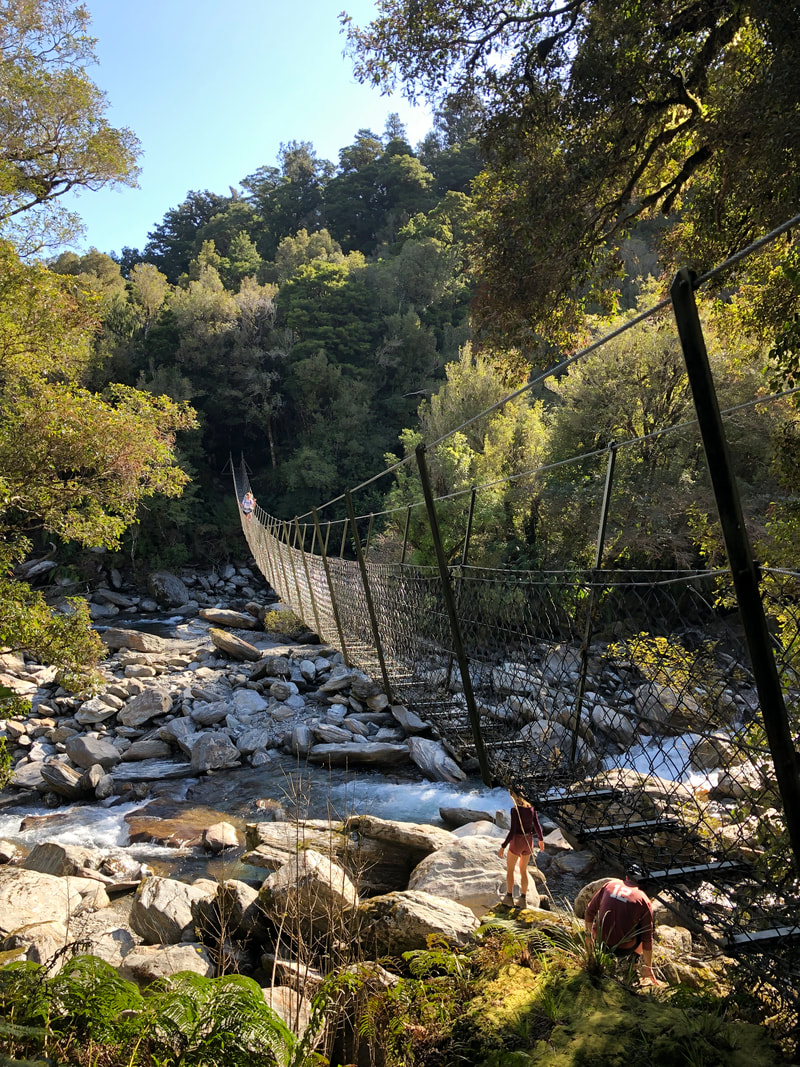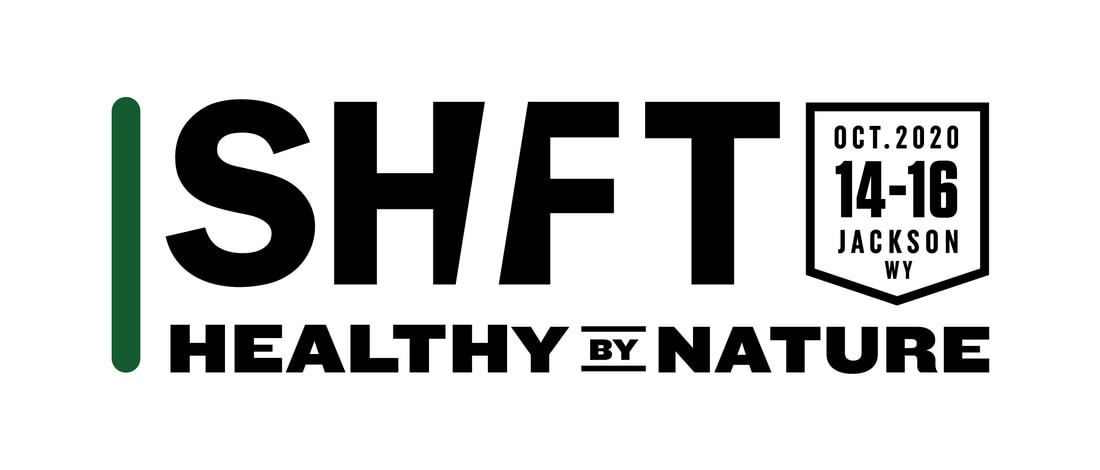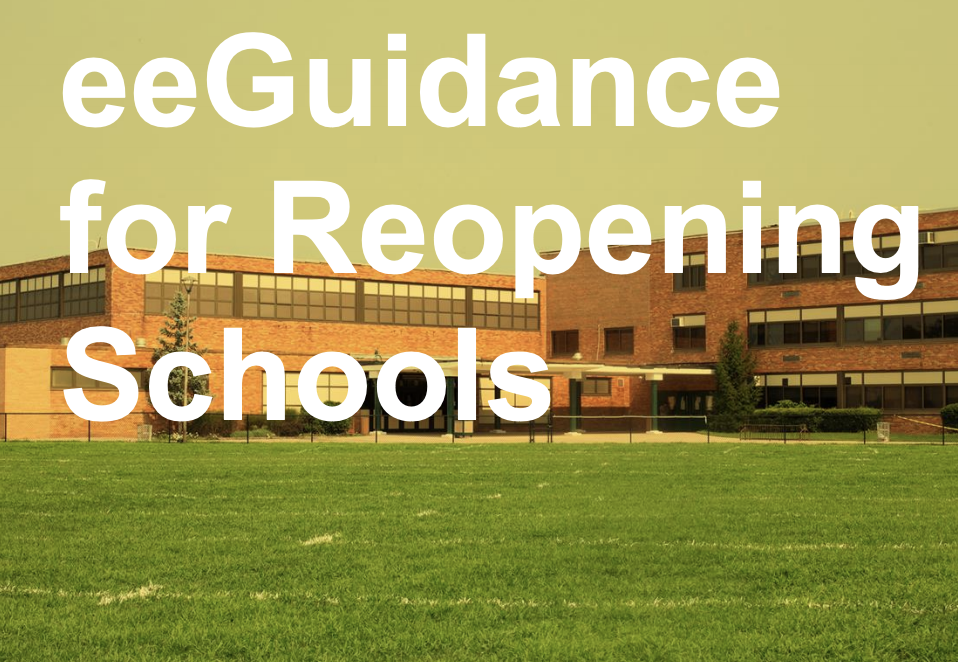Newsletter from Friday, August 21st, 2020
Dear NCH2 Community,
This newsletter highlights some upcoming events as well as news articles that may be of interest and recent research.
Upcoming Events:
Upcoming Events:
|
Virtual Coffee & Discussion
Date: Thursday, September 17th, 2020 Time: 8:30-9:30 A.M. C.D.T Topic: Active Transportation and “Slow Streets” in and around Chicago As more and more seek access to walkable and bike-able streets, the movement to set aside streets for slower traffic is gaining traction. Presentations by Jenna Holzberg of Bike Walk Oak Park and Julia Gerasimenko of the Active Transportation Alliance will discuss their perspectives of what has worked to make walking, biking, and the use of public transit more safe and equitable. This event is free on Zoom, but registration is required. Register via EventBrite using this link: https://www.eventbrite.com/e/active-transportation-and-slow-streets-in-and-around-chicago-tickets-117816846359 |
Smith Nature Symposium Livestreams
Dates and topics listed below:
Aug 13, 2020 02:00 PM CDT – Our Future Speaks
Aug 27, 2020 02:00 PM CDT – Essential Water
Sep 3, 2020 02:00 PM CDT – It’s Raining, It’s Pouring
Sep 10, 2020 02:00 PM CDT – Renewable Energy Surges
Sep 17, 2020 02:00 PM CDT – Environmental Justice in Lake County
Sep 24, 2020 02:00 PM CDT – Healing Spaces
Oct 2, 07:00 PM CDT – Awards Ceremony Honoring Bill
Register here
Dates and topics listed below:
Aug 13, 2020 02:00 PM CDT – Our Future Speaks
Aug 27, 2020 02:00 PM CDT – Essential Water
Sep 3, 2020 02:00 PM CDT – It’s Raining, It’s Pouring
Sep 10, 2020 02:00 PM CDT – Renewable Energy Surges
Sep 17, 2020 02:00 PM CDT – Environmental Justice in Lake County
Sep 24, 2020 02:00 PM CDT – Healing Spaces
Oct 2, 07:00 PM CDT – Awards Ceremony Honoring Bill
Register here
Join these live-streamed conversations to build a more just and sustainable future in the midst of the climate crisis and COVID-19. The Smith Nature Symposium is a seven-part series, hosted by Brushwood Center at Ryerson Woods, and features solution-driven artists, scientists, and environmental leaders. The Symposium series begins on August 13th and culminates in the Awards Ceremony on October 2nd with the 2020 honorees: Bill McKibben and Sue Halpern. Bill Kurtis and Donna La Pietra join the Awards as Masters of Ceremonies, along with special guests.
The Smith Nature Symposium is a celebration of nature, the arts, and individuals who have made extraordinary contributions to the science of conservation and deepened the study and understanding of the natural world. The event supports Brushwood Center’s community programs and COVID-19 crisis response. All programs are available in English and Spanish.
For more information, click here.
The Smith Nature Symposium is a celebration of nature, the arts, and individuals who have made extraordinary contributions to the science of conservation and deepened the study and understanding of the natural world. The event supports Brushwood Center’s community programs and COVID-19 crisis response. All programs are available in English and Spanish.
For more information, click here.
The Conservation Foundation's Forest Therapy Walks
|
Photo of a forest in Copeland Valley in Westland Tai Poutini National Park, taken by Kiersa Berg.
|
The Conservation Foundation is partnering with local park districts to provide a nature immersion experience. These forest walks will help you immerse yourself in nature and experience the healing effects of forest therapy or Shinrin-Yoku (Japanese for forest bathing). The walk is not about the destination, but instead the awakening of your senses to the natural environment around you. The walk is entirely outdoors. Be prepared to walk over uneven terrain. Wear comfortable clothing and walking shoes. We will practice social distancing and follow CDC guidelines.
Find locations, dates, and specific registration links below: Dates: Thursday, September 16th, 23rd, and30th, 5:30 PM - 6:30 PM (Register here) Thursday, October 7th, 14th, and 21st 5:30 PM - 6:30 PM (Register here) Location: Oak Brook – Dean Nature Sanctuary, 1215 Canterbury Lane, Oak Brook 60523 Certified Forest Therapy Guide: Jodi Trendler Dates: Friday, September 18th 9:30 AM - 11:30 AM (Register here) Sunday, October 25th 1:00 PM - 3:00 PM (Register here) Location: Wheaton – Lincoln Marsh, Harrison Ave. & Pierce Ave., Wheaton 60187 Certified Forest Therapy Guide: Jeanne Lovenelli Dates: Tuesday, September 22nd 1:00 PM - 3:00 PM (Register here) Saturday, October 10th 10:00 AM- 12:00 PM (Register here) Location:Naperville Knoch Knolls Park, 320 Knoch Knolls Rd., Naperville 60565 Certified Forest Therapy Guide: Jeanne Lovenelli |
|
SHIFT Summit
Dates: October 14-16, 2020 Topic: HEALTHY BY NATURE: Equity, Access and The Mental Health Benefits of Time Outside Register here. Registration opens Tuesday, July 21, 2020. |
The 2020 SHIFT Summit will be broadcast virtually from Jackson Hole, Wyoming, from October 14-16. Entitled “Healthy by Nature,” the Summit will focus on the mental health benefits of time outside, with a specific focus on health equity and access to nature. The 2020 SHIFT Summit has three main goals:
See frequently asked questions, summit agendas, and more here.
- Facilitate networking and transdisciplinary collaboration
- Showcase best practices, i.e., work that is impactful, innovative and replicable
- Develop substantive outcomes that help advance nature as a social determinant of health
- Official Selections for The SHIFT Awards, which feature representatives of the work determined to be the most innovative, impactful and replicable in the space by our researchers
- The Emerging Leaders Program (ELP) which prepares early career leaders to address issues related to public health, conservation, advocacy, structures of oppression and community engagement
See frequently asked questions, summit agendas, and more here.
Agents of Change Science Communication Fellowship Program
|
Application due date: Friday, August 28, 2020
Website: https://www.agentsofchangeineh.com/ Background: Do you find science is lacking diverse voices and want to help create change? We invite you (or your trainees) to be part of the Agents of Change science communication program, a joint initiative between GW Milken School of Public Health (Founder and Director: Dr. Ami Zota) and Environmental Health News. Agents of Change is an ongoing series featuring the stories, analyses and perspectives of next generation environmental health and justice leaders who come from historically under-represented backgrounds in science and academia. These essays depart from other types of scientific writing in that fellows have a chance to blend their lived experiences and research expertise. We developed this platform to provide a space for early career scientists to explore intersections between research, health, diversity, and justice. In our first year of the program, fellows wrote about various topics including: Black food sovereignty, indigenous cultural fire practices, housing security and urban displacement, workers’ rights, energy production and public health, and prioritizing inclusion in environmental health research. |
Illustration from the Agents of Change Website (https://www.agentsofchangeineh.com/)
What you do:
This is a chance to have real impact. The fellowship offers an opportunity to reach people both within and outside an applicant’s field. Some of our prior blogs have reached nearly one million views, with readers ranging from senior scientists to social activists to farmers in rural America. By participating in the program, fellows will improve their writing skills and get experience communicating with new forms of media (e.g., blogs, social media, podcasts). Through our monthly trainings, fellows get the opportunity to: discuss new ideas in a safe space, provide and receive feedback from peers, and learn about new research and community perspectives in environmental health and justice. How to apply: Eligible applicants are early career scientists or early career practitioners from under-represented populations pursuing work related to environmental public health, environmental justice, or ecosystem/climate health or justice. Relevant disciplines may include (but not limited to): environmental health, epidemiology, urban planning, earth sciences, or sociology. Applications are due on August 28, 2020. More information on fellowship requirements, eligibility, and the application process is available at www.agentsofchangeinEH.com. If you have questions about the program, you can also email Dr. Ami Zota at [email protected]. |
Past Events
|
July 2020 Coffee & Discussion
Check out our July 23rd, 2020 Coffee & Discussion Minutes page to see notes from our C&D focusing on creative programming in the midst of the pandemic. Click here to see the minutes. |
In the News
|
A graphic from the North American Association for Environmental Education's "Environmental Education Guidance for Reopening Schools."
|
Environmental Education Guidance for Reopening Schools. Guidelines prepared by the North American Association for Environmental Education and affiliated state environmental education organizations. The document describes the role that the environmental education community can play in assisting schools to reopen and provides suggestions for how to do so safely.
Here's the link to the article. |
Paper of the Month:
First, a note on systematic reviews:
Many of the papers published in the research literature these days are “systematic reviews” in which the authors use a set of pre-determined criteria to identify publications that describe original research by others that speak to a given topic. Systematic reviews play an important role by summarizing a large quantity of research, they provide important introductions and overviews to fields with rich histories. Systematic reviews have a second mission—to identify gaps in our knowledge. One example of a systematic review is the paper by Ardoin et al. (2018), which is cited in the policy document on school openings described in our In The News section. This systematic review was well done and provides important information.
However, systematic reviews need to be read critically and with an understanding of their limitations. First of all, it is important to recognize that systematic reviews can only “review” the original research articles that make it into press. There is a notable publication bias that favors the publication of statistically significant results that support the intended outcomes of a program or study. Many well-conducted studies that find no difference or point to a negative outcome are never published; many are never submitted for publication (Torgerson, 2006). Thus, there exists a positive publication bias.
The second problem is in how organizations use the information provided in systematic reviews. Many organizations rely heavily on systematic reviews to provide support for their programs, but in their zeal to illustrate supportive studies they fail include the more nuanced commentary that an equally important part of a systematic review -the identification of gaps in our knowledge. Thus, while Ardoin et al. (2018) point out that the 119 studies they reviewed found 121 different positive outcomes, they stress that the research they reviewed focused on short-term outcomes, and not long lasting, transformative experiences that may change people’s relationships with nature. An important message of Ardoin et al. (2018) is that the focus of the papers they reviewed on acute, outcome oriented “success” may distort our perceptions of which programs are succeeding. They call for alternative forms of research that examine longer-term outcomes and explore the richness of the education experience, and the impact of environmental education on long-term behavior change. Thus, while we celebrate the work that has been done, let us recognize there is still work to be done to further our understanding of how environmental education can enhance people’s connections with and to nature.
Check out these papers that relate to this debate about systematic reviews:
Ardoin, N. M., A. W. Bowers, N. W. Roth and N. Holthuis (2018). "Environmental education and K-12 student outcomes: A review and analysis of research." The Journal of Environmental Education 49(1): 1-17. https://doi.org/10.1080/00958964.2017.1366155
Abstract: Many practitioners and researchers describe academic and environmental benefits of environmental education for kindergarten through twelfth grade (K-12) students. To consider the empirical underpinnings of those program descriptions, we systematically analyzed the peer-reviewed literature (1994–2013), focusing on outcomes of environmental education programs with K-12 students. In the resulting sample of 119 articles, we identified 121 unique outcomes, finding that most articles reported positive findings from the programs under study. Reflections stemming from the review highlight the versatility of environmental education, while also suggesting opportunities for bolder and more diversified approaches in research design and thinking.
Torgerson, C. J. (2006). "PUBLICATION BIAS: THE ACHILLES’ HEEL OF SYSTEMATIC REVIEWS?" British Journal of Educational Studies 54(1): 89-102. https://doi.org/10.1111/j.1467-8527.2006.00332.x
Abstract: The term ‘publication bias’ usually refers to the tendency for a greater proportion of statistically significant positive results of experiments to be published and, conversely, a greater proportion of statistically significant negative or null results not to be published. It is widely accepted in the fields of healthcare and psychological research to be a major threat to the validity of systematic reviews and meta-analyses. Some methodological work has previously been undertaken, by the author and others, in the field of educational research to investigate the extent of the problem. This paper describes the problem of publication bias with reference to its history in a number of fields, with special reference to the area of educational research. Informal methods for detecting publication bias in systematic reviews and meta-analyses of controlled trials are outlined and retrospective and prospective methods for dealing with the problem are suggested.
Check out our Recent Research Page for more peer-reviewed articles of interest!
Happy Reading!
First, a note on systematic reviews:
Many of the papers published in the research literature these days are “systematic reviews” in which the authors use a set of pre-determined criteria to identify publications that describe original research by others that speak to a given topic. Systematic reviews play an important role by summarizing a large quantity of research, they provide important introductions and overviews to fields with rich histories. Systematic reviews have a second mission—to identify gaps in our knowledge. One example of a systematic review is the paper by Ardoin et al. (2018), which is cited in the policy document on school openings described in our In The News section. This systematic review was well done and provides important information.
However, systematic reviews need to be read critically and with an understanding of their limitations. First of all, it is important to recognize that systematic reviews can only “review” the original research articles that make it into press. There is a notable publication bias that favors the publication of statistically significant results that support the intended outcomes of a program or study. Many well-conducted studies that find no difference or point to a negative outcome are never published; many are never submitted for publication (Torgerson, 2006). Thus, there exists a positive publication bias.
The second problem is in how organizations use the information provided in systematic reviews. Many organizations rely heavily on systematic reviews to provide support for their programs, but in their zeal to illustrate supportive studies they fail include the more nuanced commentary that an equally important part of a systematic review -the identification of gaps in our knowledge. Thus, while Ardoin et al. (2018) point out that the 119 studies they reviewed found 121 different positive outcomes, they stress that the research they reviewed focused on short-term outcomes, and not long lasting, transformative experiences that may change people’s relationships with nature. An important message of Ardoin et al. (2018) is that the focus of the papers they reviewed on acute, outcome oriented “success” may distort our perceptions of which programs are succeeding. They call for alternative forms of research that examine longer-term outcomes and explore the richness of the education experience, and the impact of environmental education on long-term behavior change. Thus, while we celebrate the work that has been done, let us recognize there is still work to be done to further our understanding of how environmental education can enhance people’s connections with and to nature.
Check out these papers that relate to this debate about systematic reviews:
Ardoin, N. M., A. W. Bowers, N. W. Roth and N. Holthuis (2018). "Environmental education and K-12 student outcomes: A review and analysis of research." The Journal of Environmental Education 49(1): 1-17. https://doi.org/10.1080/00958964.2017.1366155
Abstract: Many practitioners and researchers describe academic and environmental benefits of environmental education for kindergarten through twelfth grade (K-12) students. To consider the empirical underpinnings of those program descriptions, we systematically analyzed the peer-reviewed literature (1994–2013), focusing on outcomes of environmental education programs with K-12 students. In the resulting sample of 119 articles, we identified 121 unique outcomes, finding that most articles reported positive findings from the programs under study. Reflections stemming from the review highlight the versatility of environmental education, while also suggesting opportunities for bolder and more diversified approaches in research design and thinking.
Torgerson, C. J. (2006). "PUBLICATION BIAS: THE ACHILLES’ HEEL OF SYSTEMATIC REVIEWS?" British Journal of Educational Studies 54(1): 89-102. https://doi.org/10.1111/j.1467-8527.2006.00332.x
Abstract: The term ‘publication bias’ usually refers to the tendency for a greater proportion of statistically significant positive results of experiments to be published and, conversely, a greater proportion of statistically significant negative or null results not to be published. It is widely accepted in the fields of healthcare and psychological research to be a major threat to the validity of systematic reviews and meta-analyses. Some methodological work has previously been undertaken, by the author and others, in the field of educational research to investigate the extent of the problem. This paper describes the problem of publication bias with reference to its history in a number of fields, with special reference to the area of educational research. Informal methods for detecting publication bias in systematic reviews and meta-analyses of controlled trials are outlined and retrospective and prospective methods for dealing with the problem are suggested.
Check out our Recent Research Page for more peer-reviewed articles of interest!
Happy Reading!







